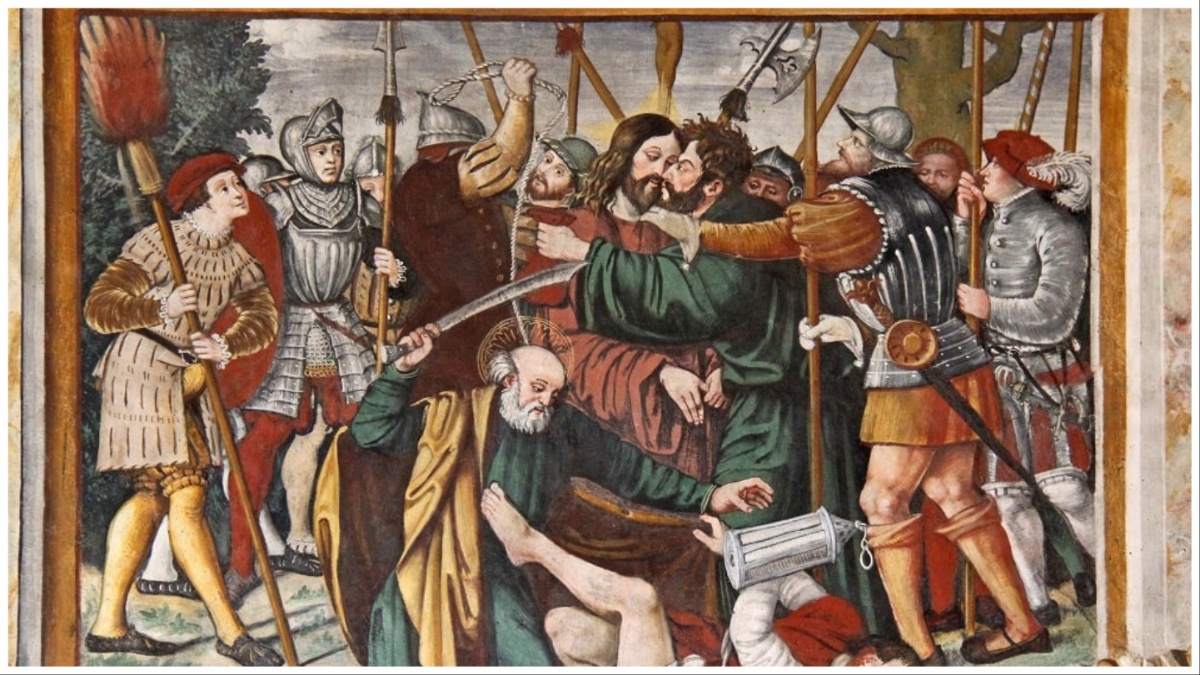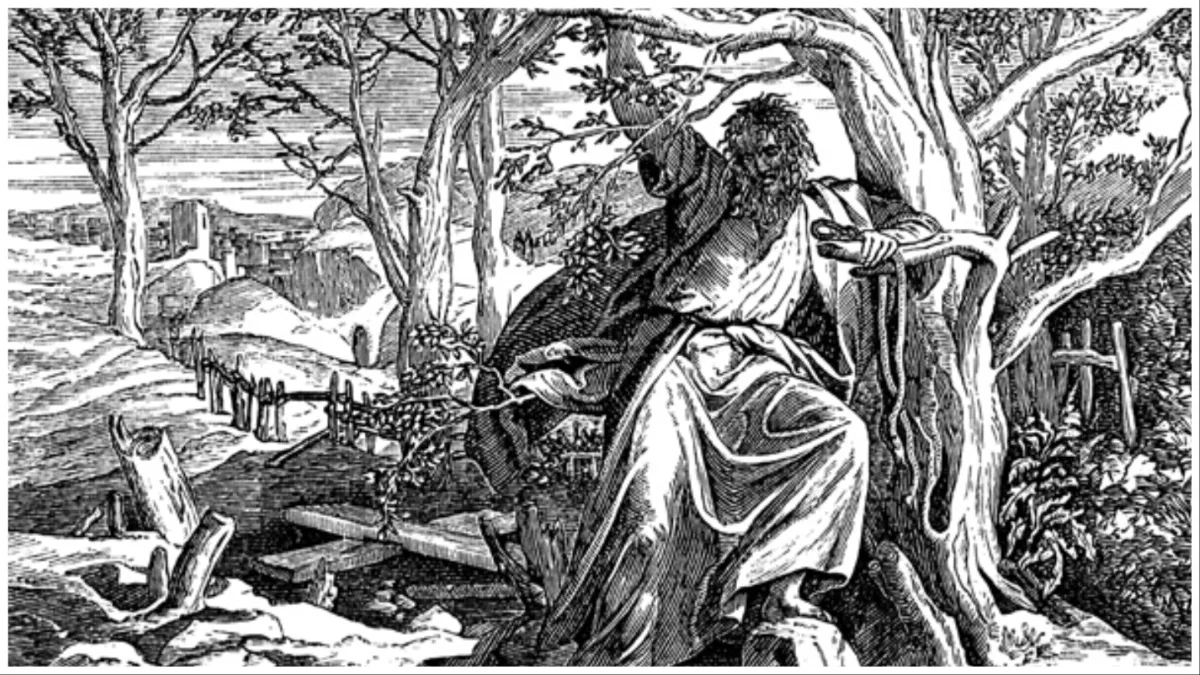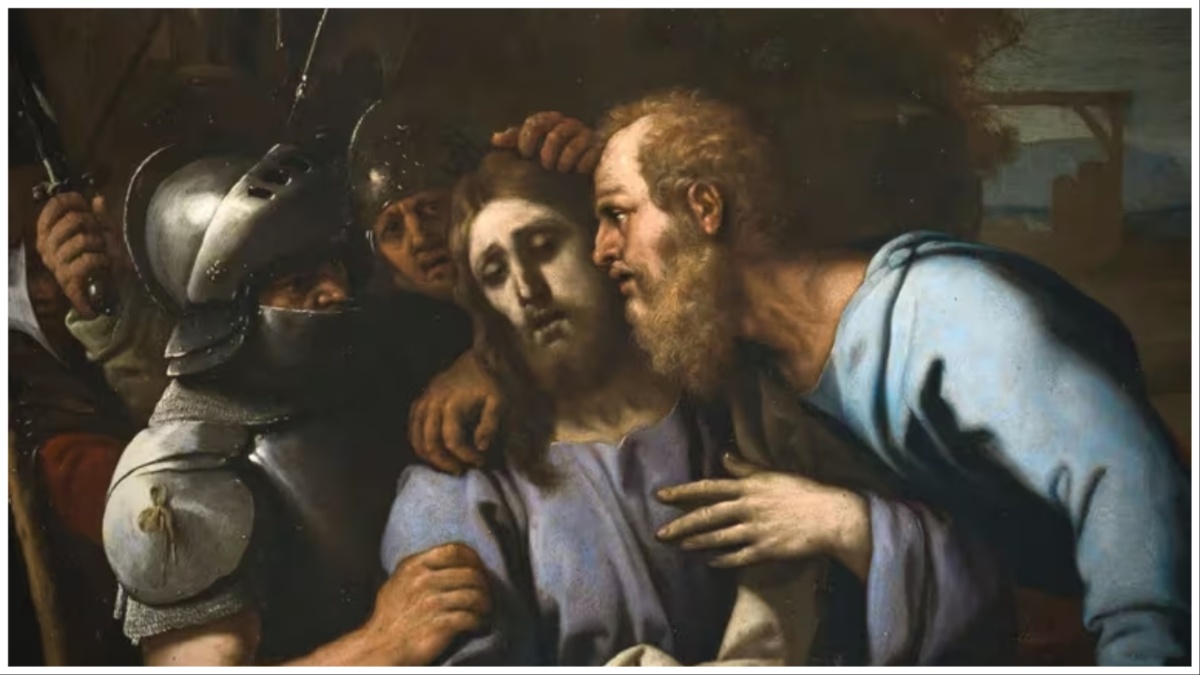It’s one of the most recognizable stories in human history: Jesus Christ, a Jewish religious leader who lived from roughly 6-4 BC to AD 33, was betrayed by his apostle Judas Iscariot for 30 pieces of silver. Judas was then so remorseful he hanged himself, and then he rotted until he fell and his middle busted open (these accounts are from two different Bible scriptures combined). Let’s take a closer look at what happened to Judas after he betrayed Jesus.
Jesus is the most important figure in Christianity, which is the largest religion in the world. Christians believe that Jesus is God the Father, God the Son and God the Holy Spirit, a combination known as the Trinity. After he was betrayed by Judas and crucified, they believe he came back to life three days later on a day Christians celebrate as Easter Sunday. While Judas will always be remembered as a part of Jesus’ story, he is considered a man of lowly character and a metaphor for evil and greed. In fact, just the name itself implies that someone is a traitor.
Who was Judas Iscariot?

In the New Testament of the Bible, some of the central figures have a second name that gives information about where they’re from, or an aspect of their personality. Jesus was often called the Nazarene, and Simon was known as the Zealot. Judas Iscariot was used to differentiate him from Judas Thaddeus. It’s believed that Iscariot means “Man of Querjoth,” with the latter being a village in southern Judea.
Judas comes from the Hebrew Judah, which translates to “let God be praised,” so there’s some good irony there. Judas was the treasurer of the disciples, meaning he handled the money. In John 12:4-6, we learn that Judas was preoccupied with money and would steal from the common purse:
“But one of his disciples, Judas Iscariot, who was later to betray him, objected, ‘Why wasn’t this perfume sold and the money given to the poor? It was worth a year’s wages.’ He did not say this because he cared about the poor but because he was a thief; as keeper of the money bag, he used to help himself to what was put into it.” This of course foreshadows his eventual betrayal of Jesus and highlights his wicked character.
In the Bible, Judas agrees to deliver Jesus to the high priests for 30 pieces of silver. At the Last Supper, Jesus reveals that one of them will betray him, and then tells Judas directly: “What you must do, do it as soon as possible.” Judas has a plan to kiss Jesus to point him out to the Gethsemane high priests. It’s a subversion on the idea that a kiss is meant to express love. Here’s how it’s portrayed in Mark 14:43-45:
“Just as he was speaking, Judas, one of the Twelve, appeared. With him was a crowd armed with swords and clubs, sent from the chief priests, the teachers of the law, and the elders. Now the betrayer had arranged a signal with them: ‘The one I kiss is the man; arrest him and lead him away under guard.’ Going at once to Jesus, Judas said, ‘Rabbi!’ and kissed him. The men seized Jesus and arrested him.”
Interestingly, there are four different accounts of this instance. In Matthew 26:47-50, for example, it says that Judas said “Greetings, Rabbi” and after he kisses Jesus, the messiah replies, “Do what you came for friend.” Then he was seized. Luke 22:47-48 says that when Judas approached Jesus, the Son of God said “Judas, are you betraying the Son of Man with a kiss?”
Finally we have John 18:2-5, which says that Judas knew where Jesus was because “Jesus had often met there with his disciples.” Then came “a detachment of soldiers and some officials from the chief priests and the Pharisees. They were carrying torches, lanterns, and weapons.” Jesus asked “Who is it you want?,” and when they asked for Jesus he said, “I am he.” In that passage, Judas does not kiss the messiah but he was “standing there with them.” So what happened next?
What Happened to Judas after he Betrayed Jesus?

Jesus chose Judas as an apostle after a period of intense prayer, as illustrated in Luke 6:12-13: “One of those days Jesus went out to a mountainside to pray, and spent the night praying to God. When morning came, he called his disciples to him and chose twelve of them, whom he also designated apostles.”
A big question a lot of people might have is why Jesus would choose Judas as an Apostle if he was all-knowing and already aware that he was going to be betrayed by him? Well, the reason is (according to Christianity) that he had to fulfill a prophecy from Psalm 41:9, which says, “Even my close friend, someone I trusted, one who shared my bread, has turned against me.” Jesus himself references this prophecy in John 13:18.
Why did Judas betray Jesus? Matthew 26:14-16 says he did it for money. Luke 22:1-4 says that Satan entered him and manipulated him. After the betrayal, there are two scriptures in the Bible that describe what happened next. In Matthew 27:1-5, it says that “When Judas, who had betrayed him, saw that Jesus was condemned, he was seized with remorse and returned the thirty pieces of silver to the chief priests and the elders. ‘I have sinned,’ he said, ‘for I have betrayed innocent blood.’ ‘What is that to us?’ they replied. ‘That’s your responsibility.’ So Judas threw the money into the temple and left. Then he went away and hanged himself.”
The money he got was used to buy the potter’s field, which is eventually called the Field of Blood. Acts 1:18-19 gives a bit of a different flavor to this account:
“With the payment he received for his wickedness, Judas bought a field; there he fell headlong, his body burst open and all his intestines spilled out. Everyone in Jerusalem heard about this, so they called that field in their language Akeldama, that is, Field of Blood.”
Basically, judas knew he sinned but didn’t want to repent, so he returned the money by throwing it at the priests and killed himself. The priests didn’t want to take back “blood money” so they used it to buy the field where Judas hanged himself.











Published: Mar 29, 2024 06:19 pm